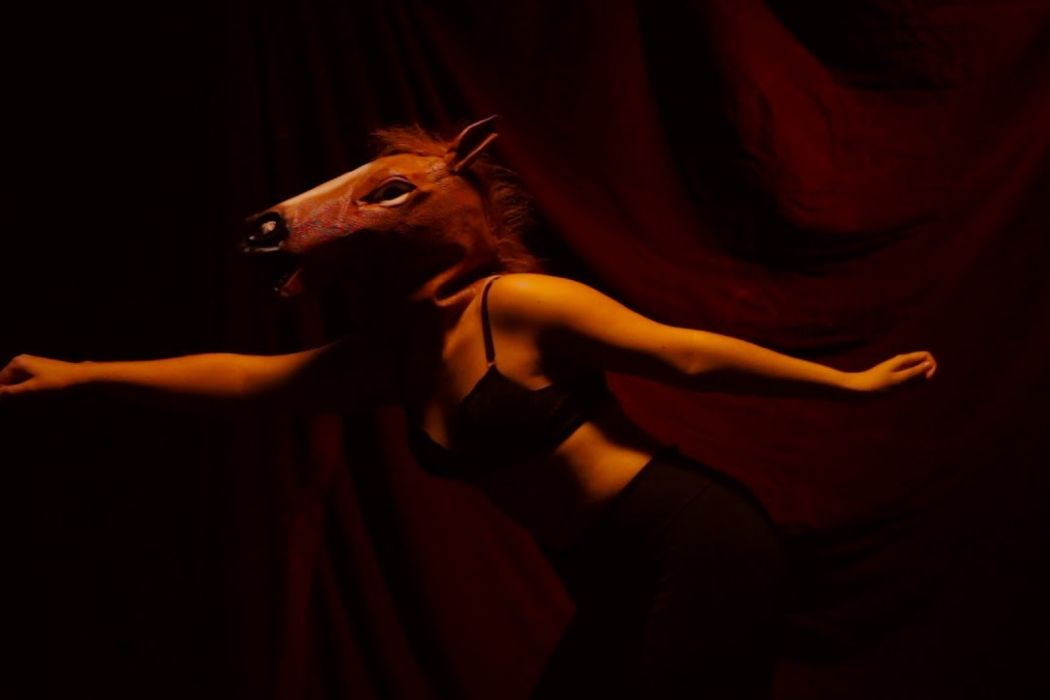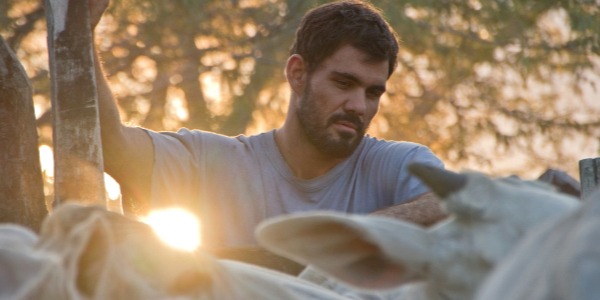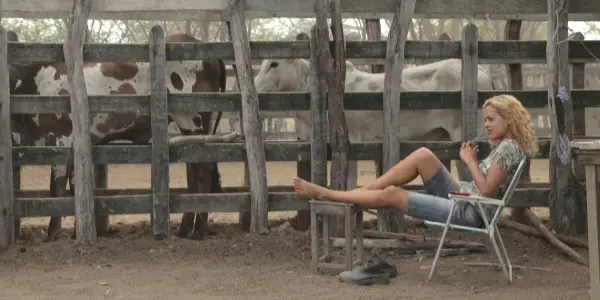NEON BULL: A Bold, Subversive Look Into Rodeo Life

Rafaela Sales Ross is a proud Brazilian currently living in…
Scavenging through the arid grounds of the Brazilian North-eastern sertão, Iremar (Juliano Cazarré) collects pieces of broken mannequins. It is the end of yet another rodeo and the worker is quick to change his focus from his job to his passion. Whenever the man is not pulling bulls by their tails or washing dirt-covered stables, he dreams of one day leaving it all behind to work in the fashion industry, a dream so starkly opposite to his reality it seems almost feverish.
A culturally rich take on gender stereotypes
Neon Bull employs the unique routine of rodeos to approach – and subvert – gender stereotypes. In this culture where rules bare little resemblance to the established urban modus operandi, the societal places occupied by men and women oscillate as naturally as the scarce tropical wind. Whilst Iremar dedicates his spare time to refining his sewing technique, Galega (Maeve Jinkings) is often found under the troupe’s truck, fixing whichever mechanical problem the vehicle may throw her way.

Perhaps one of the most interesting manners in which director Gabriel Mascaro explores blended gender conventions is through the characters different dynamics with Cacá (Alyne Santana), Galega’s young daughter. Stuck on the limbo between infancy and adolescence, Cacá struggles to balance her need for structure with her craving for independence. Conflicted by her mother’s profession as a sex worker and longing for some notion of a traditional family, the girl turns her admiration to Iremar, whose affectionate demeanour towards her seems to fulfil a parenting role undetermined by gender.
A world revolving around the animal
Also central to the film’s essence is the relationship between men and animal. There is an unspoken respect for the cattle and its pivotal role in this particular area of the country. The bull is not only responsible for providing food, income and some sense of stability, but also symbolises the only conceivable way out of the gruelling struggle of working the stables. As the workers’ hands get more and more calloused, the fortune of the farm owners increases in an almost unimaginable rate, the inequality gap so abyssal it often shatters one’s hopes before they even arise. During one of the film’s key scenes, the director crudely shows the viewer how, in this world, the animal reigns supreme above the man.

The metaphorical dance between life and death composed by Mascaro reaches its peak when Iremar and a heavily pregnant security guard/saleswoman, Geise, have passionate sex at her workplace. With life spilling from every single one of her pores, the woman is not only in complete control of her own pleasure but entirely unafraid of her hormone-driven sexual impulses. The scene is quickly followed by a casual display of a cow carcass being grilled on the stick, the frame of its beheaded body easily recognisable while unaffected passers-by stroll around the place. Here, the message could not be any clearer: living is sometimes nothing but an eternal circle of obscenities.
What did you think of Neon Bull? Let us know in the comments!
Neon Bull is currently available on MUBI US.
Watch Neon Bull
Does content like this matter to you?
Become a Member and support film journalism. Unlock access to all of Film Inquiry`s great articles. Join a community of like-minded readers who are passionate about cinema - get access to our private members Network, give back to independent filmmakers, and more.
Rafaela Sales Ross is a proud Brazilian currently living in Scotland. She has a Masters in Film and Visual Culture, and has been diving deep into the portrait of suicide on film for a few years now. Rafa, as she likes to be called, loves Harold and Maude, The Before Trilogy, The Broken Circle Breakdown, Kleber Mendonça Filho and pretty much anything with either Ruth Gordon or Javier Bardem in it. You can find her on both Twitter and Letterboxd @rafiews













